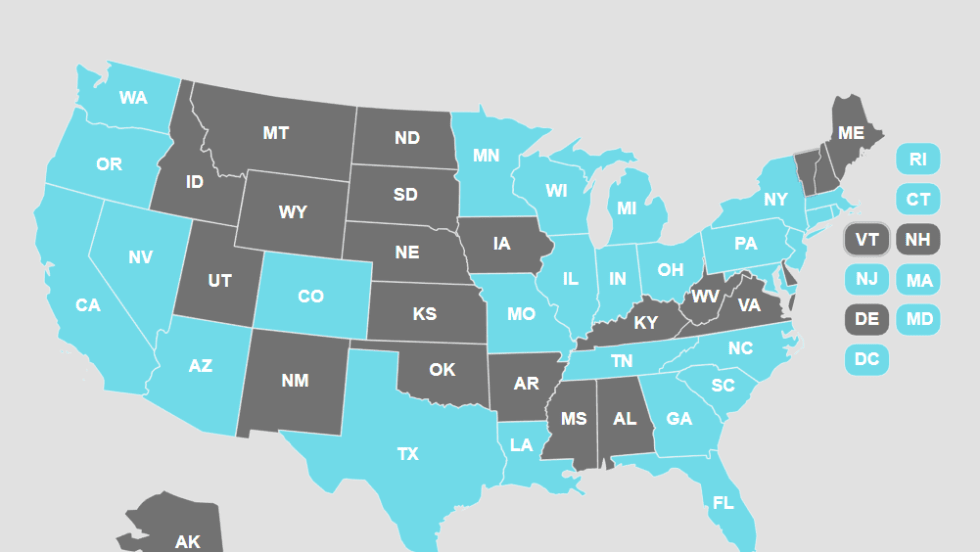You’re a small motor carrier, and you’ve been trying unsuccessfully to get payment from a freight broker for months. What can you do?
You’re a small motor carrier, and you’ve been trying unsuccessfully to get payment from a freight broker for months. What can you do?
That’s the situation many carriers have found themselves in, as the freight recession takes its toll on freight brokers as well as trucking companies.
Illinois-based Armada Transport, for instance, has been trying to get paid more than $22,000 owed to them by third-party logistics provider Elite Transit Solutions, which has laid off nearly all its staff.
Federal law requires brokers and freight forwarders to have a minimum of $75,000 in financial security that carriers are supposed to be able to make a claim on if they haven’t been paid. This financial security is commonly provided through a third party via surety bonds, also called freight broker bonds.
But what happens if there’s more in carrier claims than $75,000? And what if that surety bond gets cancelled? According to the Federal Motor Carrier Safety Administration website, Elite Transit’s surety bond with Allegheny Casualty Company will be canceled as of Nov. 22.
We reached out to J.D. Weisbrot, managing director of Risk Strategies’ commercial surety division, for more information on broker bonds and what a motor carrier can do in this situation.
Weisbrot has been doing this for 23 years. Previously he was president and chief underwriting officer for JW Surety Bonds, which was purchased earlier this year by Risk Strategies. His division, he says, is the largest producer of freight broker bonds in country, representing 40% of the entire marketplace.
What Does a Surety Bond Cancellation Mean?
All surety bonds have a cancellation provision, Weisbrot explained. Unlike regular insurance that you can cancel immediately, a freight broker surety bond has a 30 day cancellation provision. So if the insurance company providing the bond cancels it on October 15, it won’t fully cancel until 30 days after that.
At that point, under federal regulations, there is a 60-day window where claimants can make a claim upon the bond.
But what if the claims are more than the bond is worth?
“This often happens when a freight broker hits financial failure,” Weisbrot says. “Once all the claims have come in during that 60-day window, the surety company will analyze all the claims, see which ones are legitimate, and any legitimate claims get paid out on pro rata basis. It’s not first-come first-served, it doesn’t matter if you’re first or last.
“Say the total claims are double the bond amount, everyone would get 50 cents on the dollar,” Weisbrot explains. “The worse the damage is, the less everyone will receive.”
“It doesn’t matter where you are in line, as long as you’re in line.”
This scenario “unfortunately is not uncommon these days,” Weisbrot says. “Transportation is currently in recession and has been since September of last year, and we’ve seen a lot of freight brokers go out of business this year.”
What Carrier Claims Can Be Denied?
“We probably see up to 20 claims a day,” Weisbrot says. “And a lot of those claims are resolved.”
But there are also a number of reasons those claims could be denied by the insurance/surety company providing the broker bond.
1. The payment is not overdue.
“A lot of carriers are in the same cash crunch as the brokers and looking to get paid quickly,” Weisbrot says. “I’ve seen agreements where the broker has to pay in 30 days and the carrier is making a claim on the 15th because they’re nervous they’re not going to get paid.”
2. The claim involves an exempt commodity.
The most common reason claims on broker bonds are denied, Weisbrot says, is that under federal law, there’s a long list of exempt commodities.
“There’s a huge list,” he says, of products the federal government has said these are not claimable, often food products such as grain, onions, or eggs.
“A claim could be denied even if that carrier is owed the money.”
3. It’s not an interstate delivery
Weisbrot explains that claims can be denied if the load is an intrastate delivery instead of an interstate delivery.
4. There is a bona fide dispute between the companies
Weisbrot gives an example of a carrier that has made a claim that appears legitimate, but when the surety company contacts the broker, they learn that the carrier agreement has a provision for reduction of payment for late delivery. If the load was supposed to be there in two days, but it took four days, and the agreement says the broker will withhold $250 for each day it’s late, the broker has a legitimate reason to withhold $500 from that payment.
“If you still disagree, you have to take this into a court of law,” he says.
Raising Required Insurance Minimums
The minimum broker financial requirement was increased from $10,000 to $75,000 by the Moving Ahead for Progress in the 21st Century Act (MAP-21) a decade ago, but many say it’s clearly not enough.
The FMCSA has proposed changes to freight broker and freight forwarder financial responsibility requirements to try to address the problem of brokers that don’t pay motor carriers.














